Find Help
More Items From Ergsy search
-
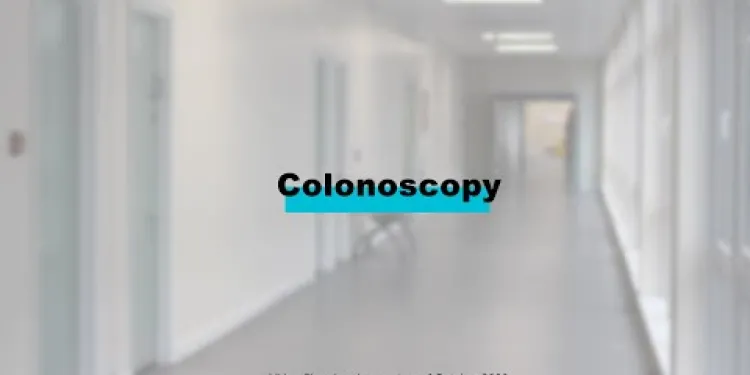
Endoscopy Procedures | Colonoscopy
Relevance: 100%
-
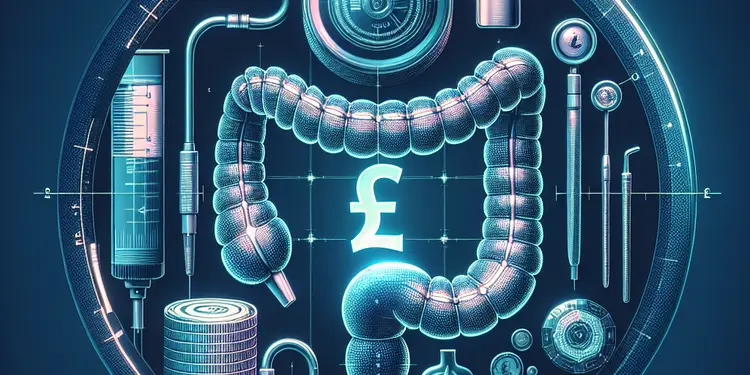
What is an endoscopy?
Relevance: 85%
-
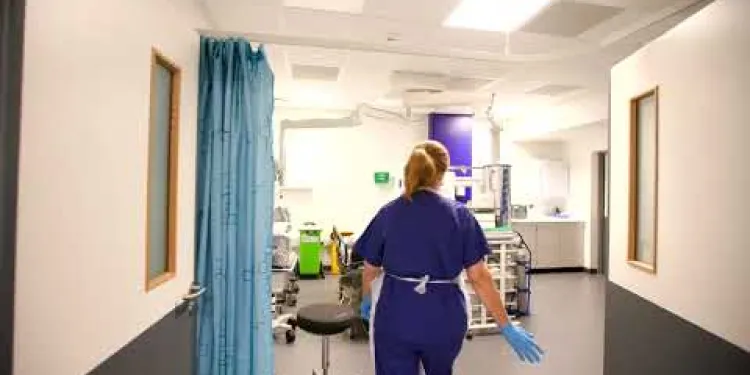
Endoscopy Unit
Relevance: 79%
-
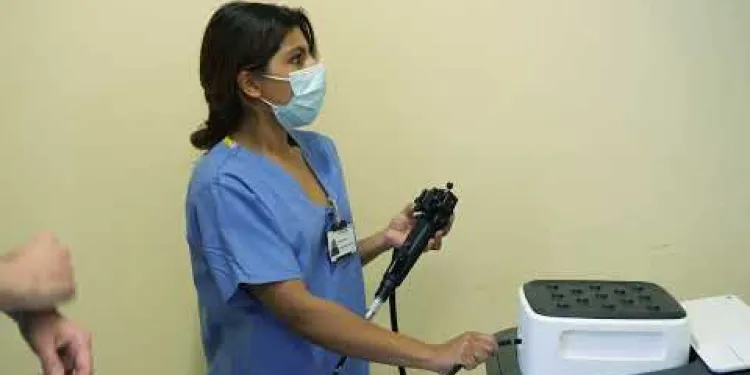
MTW Endoscopy service and training hub
Relevance: 69%
-
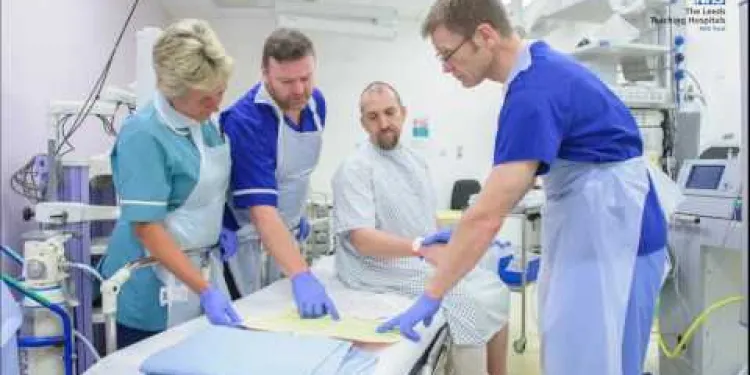
Endoscopy Introduction - The Patient Journey
Relevance: 65%
-
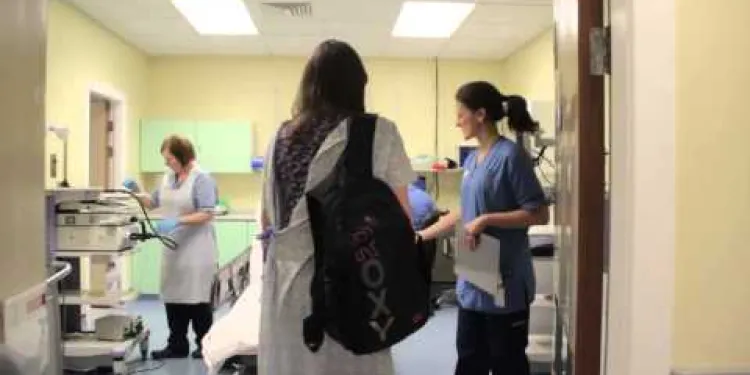
Your Visit to the Endoscopy Unit at NHS Tayside
Relevance: 64%
-
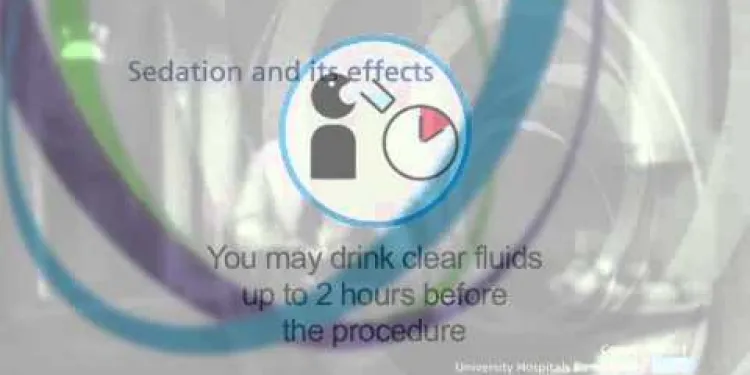
Endoscopy video preview
Relevance: 63%
-
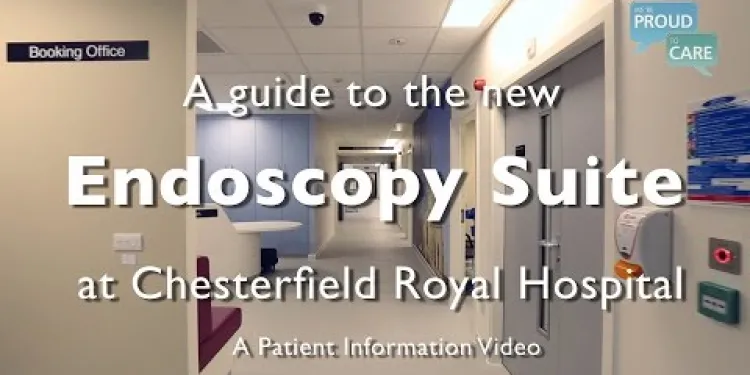
A guide to the new Endoscopy Suite at Chesterfield Royal Hospital NHS Foundation Trust
Relevance: 62%
-
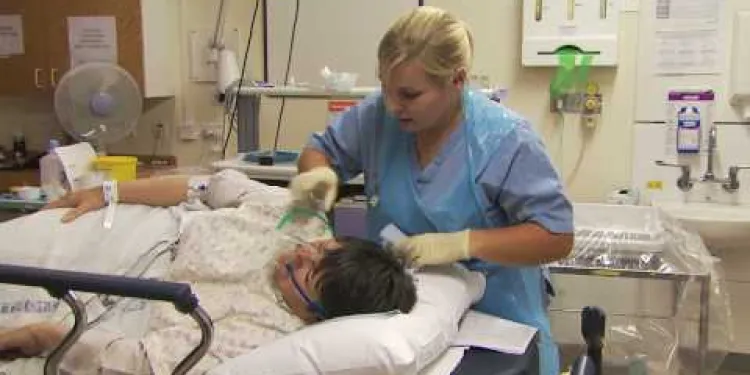
Bournemouth Digestive Diseases Centre: Endoscopy Procedure
Relevance: 59%
-
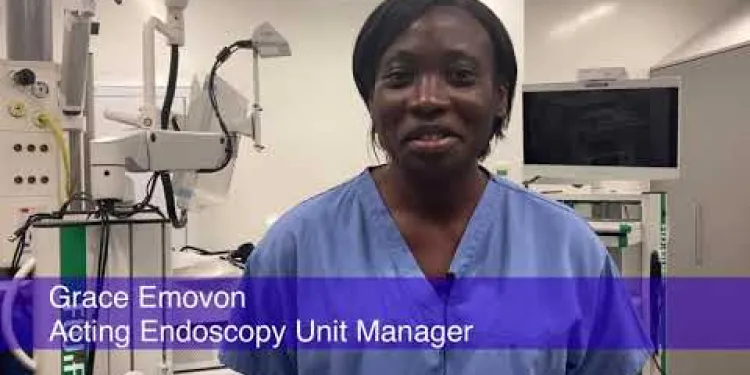
Coming to the Endoscopy Unit at Harrogate District Hospital
Relevance: 59%
-

Mark Lancaster Patient Experience Leeds Endoscopy
Relevance: 57%
-
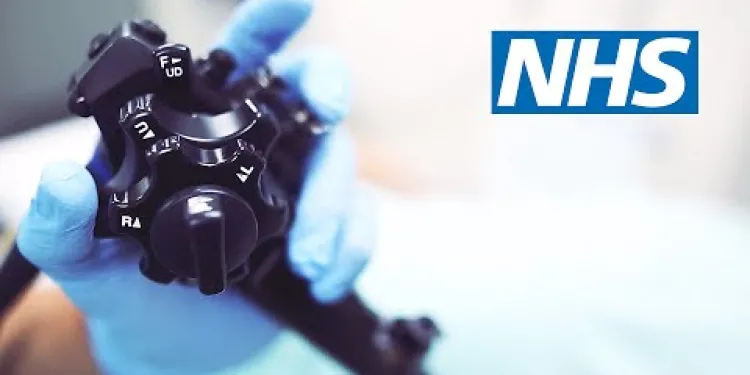
What happens during a colonoscopy?
Relevance: 56%
-
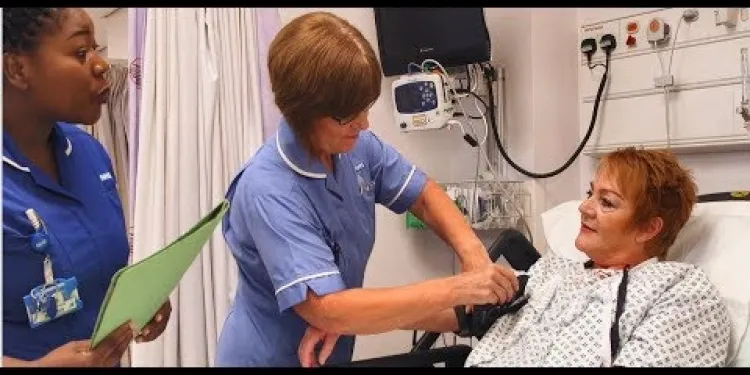
What to expect at your colonoscopy
Relevance: 55%
-
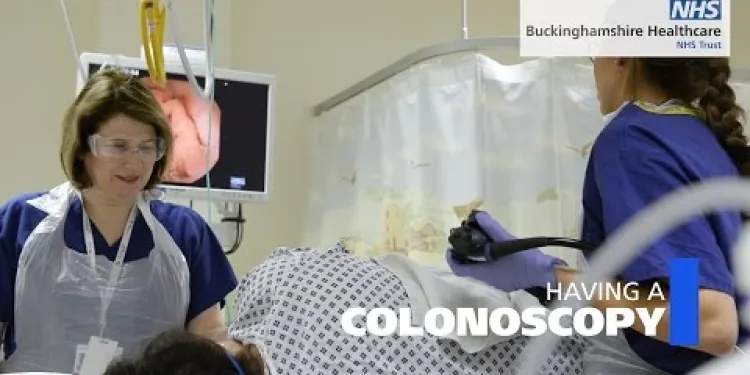
Having a colonoscopy in hospital - Patient Guide
Relevance: 54%
-
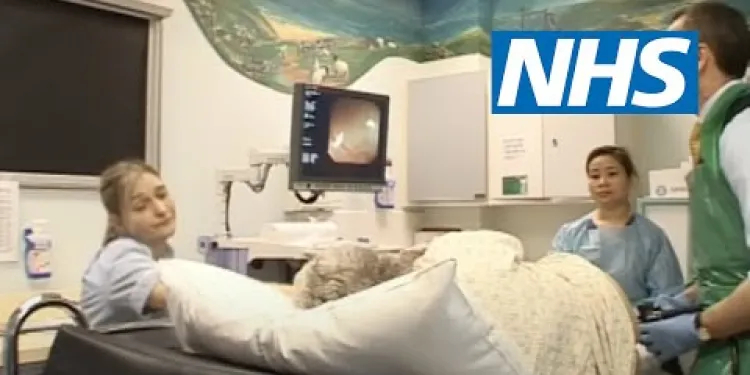
What happens during a colonoscopy? | NHS
Relevance: 53%
-
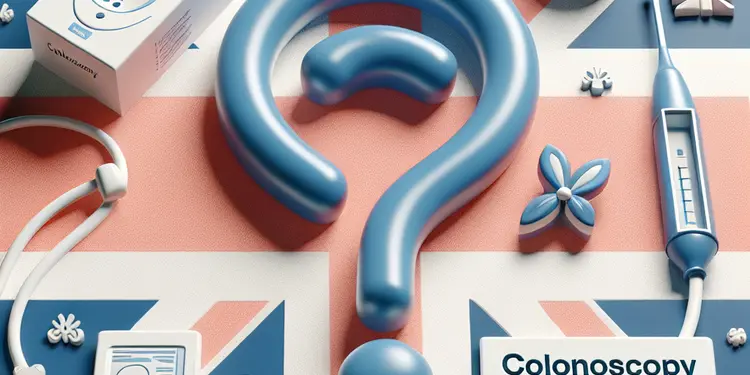
Is a colonoscopy necessary after a positive home test?
Relevance: 52%
-
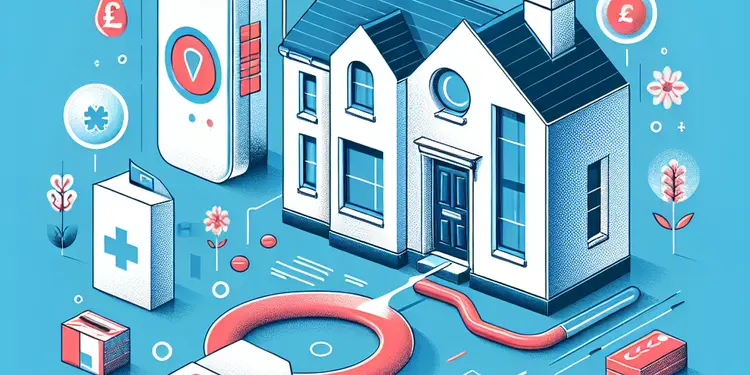
Can home colorectal cancer tests replace a colonoscopy?
Relevance: 50%
-
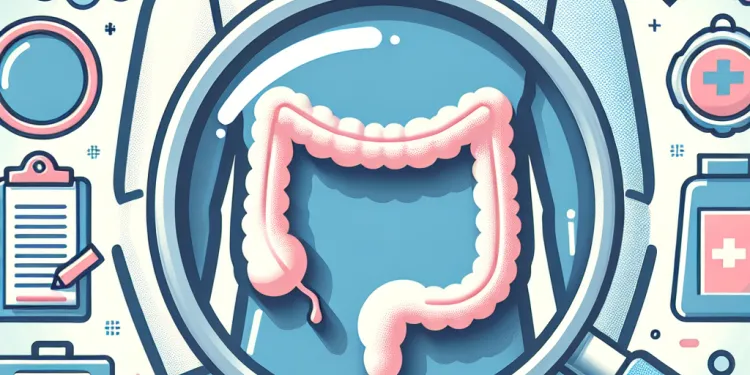
How is Crohn's disease diagnosed?
Relevance: 42%
-

What alternative methods exist to screen for colorectal cancer?
Relevance: 26%
-

What is a colonoscopy and how is it used in bowel cancer?
Relevance: 24%
-

What are the recommendations for colorectal cancer screening?
Relevance: 24%
-
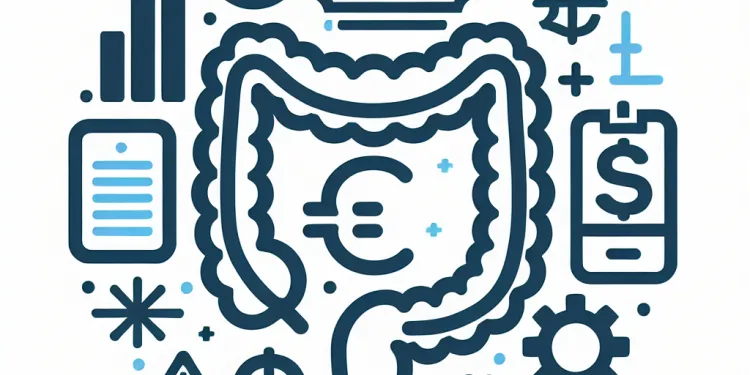
How is bowel cancer diagnosed?
Relevance: 22%
-

How can I test myself for colorectal cancer?
Relevance: 22%
-

What are the advantages of an at-home colorectal cancer test?
Relevance: 19%
-
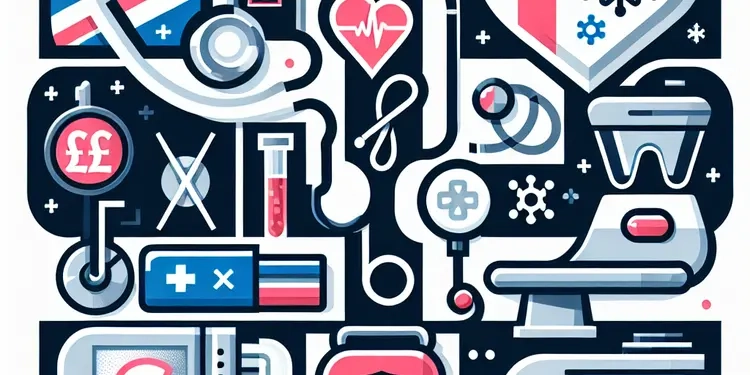
What kinds of cancer screening are available?
Relevance: 18%
-

What is a stool DNA test?
Relevance: 17%
-

Do I need a prescription to get a stool DNA test?
Relevance: 17%
-

Can children develop Crohn's disease?
Relevance: 17%
-
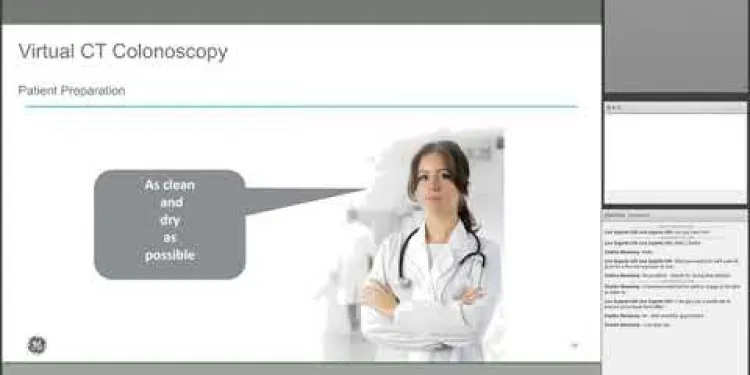
Live Expert CT Colonography YouTube
Relevance: 17%
-

Are there risks associated with home colorectal cancer tests?
Relevance: 16%
-

What is Bowel Cancer?
Relevance: 16%
-

What is colorectal cancer?
Relevance: 16%
-
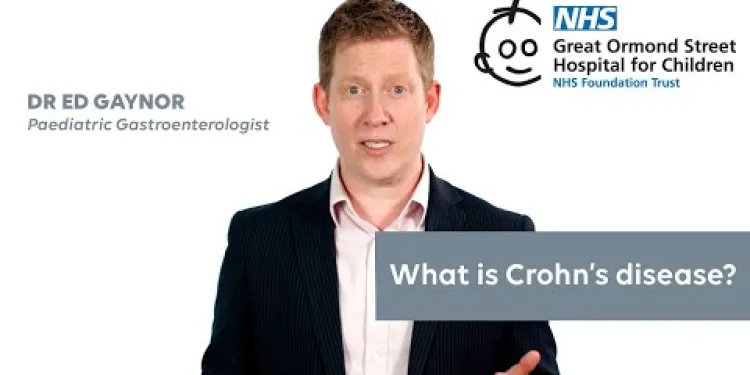
What is Crohn’s disease and how is it treated?
Relevance: 14%
-

What are the main methods for testing yourself for colorectal cancer?
Relevance: 13%
-

What is a CT colonography?
Relevance: 13%
-
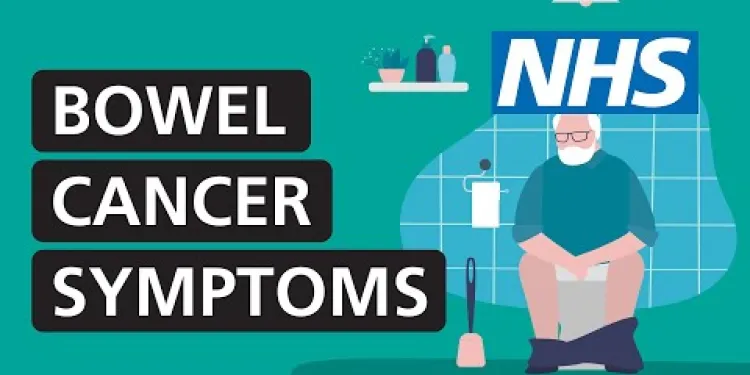
Bleeding from the bottom rectal bleeding
Relevance: 13%
-
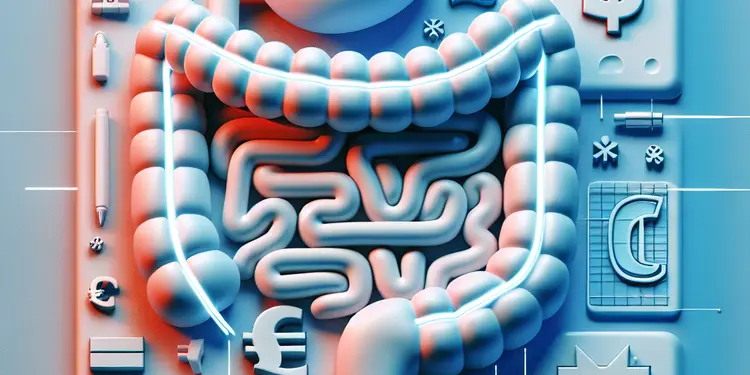
Are there specific gut-related diseases that become more common with age?
Relevance: 13%
-
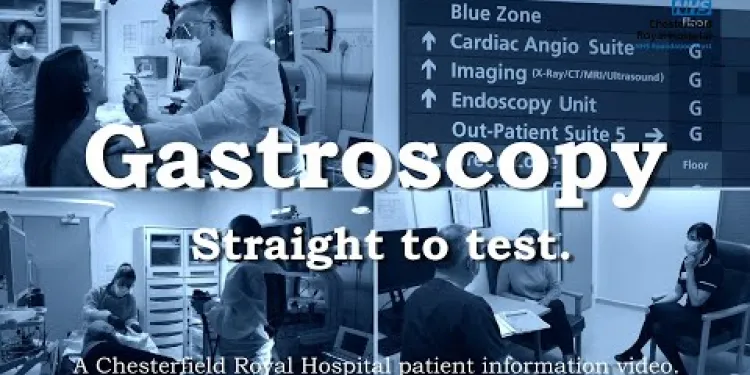
Gastroscopy - What to Expect on Referral to Chesterfield Royal Hospital
Relevance: 13%
-
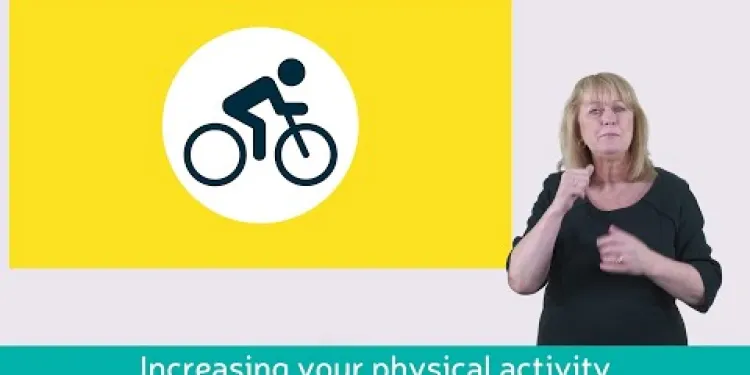
Learn about bowel cancer (British Sign Language version)
Relevance: 12%
-
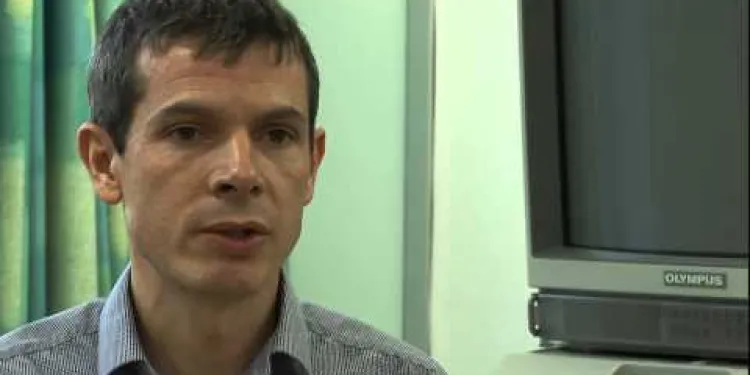
Bowel cancer - Symptoms and signs to look out for
Relevance: 12%
Endoscopy Procedures | Colonoscopy
Introduction to Colonoscopy
A colonoscopy is a medical procedure used to examine the interior of the large intestine (colon) and rectum. It is a type of endoscopy specifically focused on the lower digestive tract. In the United Kingdom, as with other countries, colonoscopies are essential for detecting abnormalities, screening for colon cancer, and identifying causes of gastrointestinal symptoms such as bleeding, pain, or changes in bowel habits.Why Undergo a Colonoscopy?
Colonoscopy is crucial for the early detection and diagnosis of colon-related issues. The procedure can help identify polyps, which are small growths that may develop into cancer if left untreated. Removing these polyps during a colonoscopy can significantly reduce the risk of colorectal cancer. Additionally, it helps diagnose other conditions like Crohn’s disease, ulcerative colitis, and diverticulosis.Preparing for the Procedure
Preparation for a colonoscopy involves several steps to ensure a clear view of the colon. Patients are usually required to follow a special diet and take laxatives the day before the procedure to empty the bowel. It’s important to follow the doctor’s instructions carefully, as an incomplete preparation may result in a poor quality examination and the need to repeat the procedure.The Procedure Itself
During the colonoscopy, a long, flexible tube called a colonoscope is inserted into the rectum and advanced through the colon. The colonoscope has a light and camera at its tip, allowing the doctor to view the inside of the colon on a monitor. The procedure typically takes about 30 to 60 minutes and is performed under sedation to ensure patient comfort.Post-Procedure Expectations
After the colonoscopy, patients are monitored until the effects of the sedation diminish. Most people can resume their normal activities the following day. However, it’s common to experience some bloating or mild cramping immediately after the procedure, which should subside quickly. If any polyps were removed or biopsies taken, the doctor will provide further instructions and follow-up appointments if necessary.Risks and Considerations
While colonoscopy is generally safe, it does carry some risks, including bleeding, perforation of the colon, and adverse reactions to sedation. These risks are rare, and the benefits of early detection and treatment typically outweigh them. Patients should discuss any concerns with their healthcare provider to ensure they are well-informed before undergoing the procedure.Conclusion
Colonoscopy is a key diagnostic tool in gastrointestinal health. In the UK, the procedure plays a vital role in the early detection and prevention of colorectal cancer, amongst other conditions. Proper preparation, understanding of the process, and knowing what to expect can help alleviate concerns and ensure a smooth and successful examination.Endoscopy Procedures | Colonoscopy
Introduction to Colonoscopy
A colonoscopy is a medical test to look inside the large intestine and rectum. It helps doctors find problems in the lower part of the digestive system. In the UK, doctors use colonoscopies to check for signs of colon cancer, find out why someone might have stomach pain or bleeding, and see if there are any changes in how the bowel is working.Why Undergo a Colonoscopy?
A colonoscopy is important to spot issues in the colon early. Doctors can find and remove small lumps called polyps. Polyps might turn into cancer if not treated. Removing them helps keep you healthy. Colonoscopies can also find other problems like Crohn’s disease or ulcerative colitis.Preparing for the Procedure
To get ready for a colonoscopy, you need to follow some steps so doctors can see clearly inside the colon. You may have to eat only certain foods and take medicines to empty your bowel the day before. You must follow your doctor’s instructions carefully. If not, the test might not work well, and you could need to do it again.The Procedure Itself
During the colonoscopy, the doctor uses a long, bendable tube called a colonoscope. They gently put this tube into the rectum and move it through the colon. The colonoscope has a light and a camera so the doctor can see inside. The test takes about 30 to 60 minutes and you will be given medication to make you comfortable.Post-Procedure Expectations
After the test, you will rest until the medicine wears off. Most people feel fine to go back to their usual activities the next day. It is normal to feel a bit bloated or have mild stomach cramps after the test, but this should go away soon. If the doctor removed polyps or took samples, they will tell you what to do next and when to come back for another visit if needed.Risks and Considerations
A colonoscopy is quite safe, but there are some rare risks, like bleeding or a tear in the colon. Some people might have a reaction to the medicine given for the test. Talk to your doctor about any worries you have and make sure you understand everything before the test.Conclusion
A colonoscopy is an important test for checking gut health. In the UK, it helps find early signs of colon cancer and other gut problems. By getting ready properly and knowing what to expect, you can help make the test go smoothly and get the most benefit out of it.Frequently Asked Questions
What is a colonoscopy?
A colonoscopy is a medical procedure where a long, flexible tube with a camera (colonoscope) is used to visualise the interior lining of the large intestine (colon and rectum). It helps doctors diagnose conditions like colorectal cancer, polyps, inflammatory bowel disease, etc.
Why do I need a colonoscopy?
You might need a colonoscopy to investigate symptoms such as abdominal pain, rectal bleeding, chronic diarrhoea or constipation, and to screen for colorectal cancer or assess abnormalities found in other tests like a CT scan.
How do I prepare for a colonoscopy?
Preparation involves following a special diet, typically low-residue or clear fluids, for a day or two before the procedure. You will also be given a bowel preparation solution to drink, which helps to clear out the bowel.
Can I take my regular medications before the procedure?
Some medications may need to be adjusted or stopped temporarily. It is essential to inform your doctor about all medications you are taking, including over-the-counter drugs and supplements. Follow your doctor's specific instructions.
How long does the procedure take?
The colonoscopy itself usually takes about 30 to 60 minutes. However, you should plan to be at the clinic or hospital for approximately 2 to 3 hours, to allow time for preparation, the procedure, and recovery.
Will I be sedated during a colonoscopy?
Sedation is commonly used during a colonoscopy to help you relax and minimise discomfort. You may receive a sedative or painkiller through an IV line, and you might be awake but drowsy, or fully asleep during the procedure.
Is a colonoscopy painful?
Most people experience minimal discomfort due to the sedation. You might feel some pressure or cramping, particularly when the scope is being manoeuvred or air is introduced into the colon to improve visibility.
What happens after the procedure?
After the procedure, you'll be monitored while the sedation wears off. You may experience bloating, gas, or mild cramping. It's essential to arrange for someone to drive you home, as you won't be able to drive for 24 hours.
Are there any risks associated with a colonoscopy?
A colonoscopy is generally safe, but it does carry risks like any medical procedure. Potential risks include bleeding, perforation of the colon, adverse reactions to sedatives, or infection.
What should I avoid after a colonoscopy?
You should avoid driving, operating heavy machinery, making important decisions, and drinking alcohol for at least 24 hours after the procedure. Also, follow your doctor’s advice on resuming your regular diet and activities.
How soon will I get my results?
Some results might be discussed immediately after the procedure if no biopsies were taken. However, if samples were collected, it may take a few days to a week for full results. Your doctor will inform you when and how you will receive the results.
What if polyps or abnormal tissue are found during the colonoscopy?
If polyps or abnormal tissue are found, they can often be removed during the procedure and sent to a lab for further analysis. The removal and further examination help in identifying if they are benign or cancerous.
Can I eat normally after a colonoscopy?
In most cases, you can return to your regular diet after the procedure, unless your doctor advises otherwise. Start with light, easy-to-digest foods, and drink plenty of fluids to stay hydrated.
How often should I get a colonoscopy?
The frequency depends on your individual risk factors and initial findings. Generally, screening starts at age 50 and is repeated every 10 years if no abnormalities are found. Those with higher risk factors may need more frequent examinations.
Can I continue to go to work after a colonoscopy?
It's typically recommended to rest for the remainder of the day following a colonoscopy due to the effects of sedation. Most people can return to their regular activities, including work, the following day.
What is a colonoscopy?
A colonoscopy is a test for your tummy. It helps the doctor to look inside your body. The doctor uses a long, bendy tube with a camera on the end. This lets them see what is happening inside your tummy. Here are some ways to help you understand this better: - Ask someone you trust to explain it to you. - Use pictures to see what a colonoscopy is like. - Watch a short video about how a colonoscopy works.A colonoscopy is a check-up for your tummy. A doctor uses a long, bendy tube with a camera on it to look inside your bottom. This helps the doctor find out if there are any problems like cancer, lumps, or other tummy issues.
Why do I need a colonoscopy?
A colonoscopy is a test that looks inside your tummy. Doctors use this test to check if your insides are healthy.
This test helps find any problems early, which makes them easier to fix. Your doctor might want you to have a colonoscopy to keep you healthy.
Here are some tips that might help you understand more:
- Ask your doctor to explain why you need the test.
- Use pictures or videos to see how the test works.
- Talk to someone who has had a colonoscopy before.
You might need a special test called a colonoscopy. This test helps doctors find out why you have a tummy ache, bleeding from your bottom, diarrhea that doesn't stop, or when you can't poop. It also helps check for signs of cancer in your tummy area or to look at strange things found in other tests like a picture from a CT scan.
Here are things that can help when reading:
- Use your finger to follow along the lines.
- Ask someone to read it out loud to you.
- Listen to a recording of the text.
- Take breaks and read a bit at a time.
- Use a ruler to keep your place.
Getting Ready for a Colonoscopy
A colonoscopy is a check-up for your tummy. Here is how you can get ready:
- Talk to Your Doctor: Ask your doctor questions if you are unsure about anything.
- Change Your Food: A few days before, eat light and clear foods like soup, jelly, and clear drinks.
- Medicine: You may need to drink some special medicine that helps clean your belly. Follow instructions carefully.
- Arrange Help: Ask a friend or family member to help you get to and from the hospital.
Tools to Help: Use a calendar to mark important days. Reminders can help you remember when to start eating different foods.
To get ready, you need to eat or drink only light foods for a day or two. This means things like clear soup or juice. You will also have a special drink to help clean your tummy.
Can I take my usual medicines before the test?
Here is what you can do:
- Ask your doctor or nurse if you can take your medicine.
- Write a list of your medicines and show it to the doctor or nurse.
- Use a calendar to mark which days to take or skip your medicine.
- If you need help, ask someone you trust to remind you.
Some medicines might need to be changed or stopped for a short time. It is very important to tell your doctor about all the medicines you take. This includes medicines you buy at the store without a prescription and any vitamins or supplements. Listen to what your doctor tells you to do.
How long will it take?
The test with the camera, called a colonoscopy, takes about 30 to 60 minutes. But you should plan to be at the clinic or hospital for about 2 to 3 hours for getting ready, having the test, and resting after.
Here are some tips to help you understand better:
- Ask questions: Don't be afraid to ask your doctor or nurse if you don't understand something.
- Take a friend or family member: They can help you remember what the doctor says.
- Write it down: Take notes so you can look at them later.
Will I be given medicine to help me sleep during a colonoscopy?
Yes, you will get medicine to make you sleepy and stop you from feeling pain during the test. This is called sedation. It helps you relax and makes sure you don't feel anything. It's important to tell your doctor if you have worries about this.
To feel better, you can:
- Ask your doctor questions about how it works.
- Have a friend or family member with you.
- Use deep breaths to stay calm.
When you have a colonoscopy, you might get some medicine to help you feel calm and make sure it doesn’t hurt. The doctor might give you medicine through a small tube in your arm. You might be awake and sleepy, or you might be asleep during the test.
Does a test called colonoscopy hurt?
A colonoscopy is a test to check inside your tummy. You might worry if it hurts.
Before the test, you get medicine to help you relax or sleep. This stops you from feeling pain.
Some people feel a little tummy cramp or pressure, but most people say it doesn’t hurt much.
Remember, if you have questions, you can always ask your doctor. They are there to help you.
It might help to talk to someone who had the test before. They can tell you what it was like.
Most people do not feel much pain because of the medicine that helps them relax. You might feel a little bit of pushing or squeezing, especially when the tube is moving around or when air is put into your tummy to help the doctor see better.
If reading is hard, try using tools that read text aloud or look up words you don't know. Having a friend or family member help explain things can also be useful.
After the Procedure: What Comes Next?
After the procedure, doctors will watch you as you wake up. You might feel full, have some gas, or your tummy might hurt a little bit. It’s very important to have someone take you home because you can't drive for a whole day.
Are there any risks with a colonoscopy?
A colonoscopy is a test doctors use to look inside your tummy. Sometimes there can be problems when you have this test.
Here are some things to know:
- Feeling Uncomfortable: You might feel some tummy ache or cramps.
- Bleeding: There might be a little bleeding after the test.
- Rare Problems: Very rarely, there could be a tear in the tummy wall.
If you have questions, ask your doctor. They can help you understand and feel better about the test.
You can also talk to a friend or family member for support.
A colonoscopy is usually safe, but there are some risks. These risks can include bleeding, a tear in the colon, bad reactions to the medicine used to make you sleepy, or getting an infection.
What to stay away from after a colonoscopy?
After you have a colonoscopy, there are some things you should not do to take care of yourself. Here is what to avoid:
- Eating heavy foods: Do not eat big, greasy meals. Try to eat light foods like soup or toast.
- Drinking alcohol: Do not drink beer, wine, or any alcohol for at least a day. Drink water or juice instead.
- Heavy exercise: Do not do hard exercises like running or lifting weights. Take it easy and rest.
- Driving: Do not drive a car for 24 hours if you had medicine to make you sleepy during the test. Ask someone to drive you home.
To help you remember these steps, write a list or ask someone you trust for help. It can also be helpful to set reminders on your phone.
After the procedure, you should not drive a car, use big machines, make big choices, or drink alcohol for one whole day. Listen to your doctor about when you can start eating your normal food and doing your usual activities again.
When will I get my results?
You will get your results soon. Here are some tips:
- Ask a teacher or friend for help if you are unsure.
- Check your email or mail for your results.
- Use a calendar to mark the date you expect your results.
After the test, you might hear some results right away if there were no samples taken. But if samples were taken, it can take a few days to a week to get all the results. Your doctor will tell you when and how you will get the results.
What happens if the doctor sees unusual growths during the colonoscopy?
If the doctors find any strange lumps or tissue, they can take them out while doing the check-up. Then, these are sent to a special place to be looked at carefully. This helps to find out if they are safe or if they might turn into cancer.
To help with understanding, you can use tools like picture cards or videos. Taking notes with simple drawings or reading with a helper can also make things easier.
Can I eat like usual after a colonoscopy?
You might be hungry after the test. It's good to start with light food. Think about having soup, toast, or rice.
Drink lots of water. This helps you feel better.
If you don’t feel good, ask a doctor or nurse for help.
Using pictures or a checklist can make things clear.
After the treatment, you can usually eat your normal food again. Make sure to listen to your doctor if they tell you to eat differently. Start with small meals that are easy to chew and swallow. Drink lots of water or juice to keep your body strong and healthy.
How often should I have a colonoscopy?
A colonoscopy is a test for your tummy. It helps doctors check if everything is okay inside.
Most people need to have this test every 10 years. But, if your doctor says so, it might be needed more often.
If someone in your family has had tummy problems, ask your doctor. You may need the test sooner.
Always talk to your doctor to know what is best for you.
Support tools:
- Ask a friend or family member to help you understand.
- Write down questions you have for your doctor.
How often you need this test depends on your health and family history. Most people start getting this test at age 50. If everything looks good, they do it again every 10 years. If you have more health risks, you might need the test more often.
Can I go back to work after a colonoscopy?
A colonoscopy is a test that doctors do to check inside your tummy. After you have this test, you might feel sleepy or have a sore tummy.
Here are some tips to help you decide if you should go to work:
- Rest first: Have a rest after the test. You might feel better after sleeping.
- Ask your doctor: Your doctor can tell you if it is okay to go to work.
- Listen to your body: If you still feel tired or sore, it is best to stay home.
If reading is hard, ask someone to help you. You can also use tools like reading software to read out loud.
After a colonoscopy, you should rest for the rest of the day because of the medicine used to make you sleepy. Most people can go back to their normal activities, like work, the next day.
Here are some tips to help you understand:
- Focus on just one short sentence at a time.
- Ask someone you trust to explain things if needed.
- Use tools like text-to-speech to hear the words spoken aloud.
Useful Links
This website offers general information and is not a substitute for professional advice.
Always seek guidance from qualified professionals.
If you have any medical concerns or need urgent help, contact a healthcare professional or emergency services immediately.
Some of this content was generated with AI assistance. We’ve done our best to keep it accurate, helpful, and human-friendly.
- Ergsy carfully checks the information in the videos we provide here.
- Videos shown by Youtube after a video has completed, have NOT been reviewed by ERGSY.
- To view, click the arrow in centre of video.
- Most of the videos you find here will have subtitles and/or closed captions available.
- You may need to turn these on, and choose your preferred language.
- Go to the video you'd like to watch.
- If closed captions (CC) are available, settings will be visible on the bottom right of the video player.
- To turn on Captions, click settings .
- To turn off Captions, click settings again.
More Items From Ergsy search
-

Endoscopy Procedures | Colonoscopy
Relevance: 100%
-

What is an endoscopy?
Relevance: 85%
-

Endoscopy Unit
Relevance: 79%
-

MTW Endoscopy service and training hub
Relevance: 69%
-

Endoscopy Introduction - The Patient Journey
Relevance: 65%
-

Your Visit to the Endoscopy Unit at NHS Tayside
Relevance: 64%
-

Endoscopy video preview
Relevance: 63%
-

A guide to the new Endoscopy Suite at Chesterfield Royal Hospital NHS Foundation Trust
Relevance: 62%
-

Bournemouth Digestive Diseases Centre: Endoscopy Procedure
Relevance: 59%
-

Coming to the Endoscopy Unit at Harrogate District Hospital
Relevance: 59%
-

Mark Lancaster Patient Experience Leeds Endoscopy
Relevance: 57%
-

What happens during a colonoscopy?
Relevance: 56%
-

What to expect at your colonoscopy
Relevance: 55%
-

Having a colonoscopy in hospital - Patient Guide
Relevance: 54%
-

What happens during a colonoscopy? | NHS
Relevance: 53%
-

Is a colonoscopy necessary after a positive home test?
Relevance: 52%
-

Can home colorectal cancer tests replace a colonoscopy?
Relevance: 50%
-

How is Crohn's disease diagnosed?
Relevance: 42%
-

What alternative methods exist to screen for colorectal cancer?
Relevance: 26%
-

What is a colonoscopy and how is it used in bowel cancer?
Relevance: 24%
-

What are the recommendations for colorectal cancer screening?
Relevance: 24%
-

How is bowel cancer diagnosed?
Relevance: 22%
-

How can I test myself for colorectal cancer?
Relevance: 22%
-

What are the advantages of an at-home colorectal cancer test?
Relevance: 19%
-

What kinds of cancer screening are available?
Relevance: 18%
-

What is a stool DNA test?
Relevance: 17%
-

Do I need a prescription to get a stool DNA test?
Relevance: 17%
-

Can children develop Crohn's disease?
Relevance: 17%
-

Live Expert CT Colonography YouTube
Relevance: 17%
-

Are there risks associated with home colorectal cancer tests?
Relevance: 16%
-

What is Bowel Cancer?
Relevance: 16%
-

What is colorectal cancer?
Relevance: 16%
-

What is Crohn’s disease and how is it treated?
Relevance: 14%
-

What are the main methods for testing yourself for colorectal cancer?
Relevance: 13%
-

What is a CT colonography?
Relevance: 13%
-

Bleeding from the bottom rectal bleeding
Relevance: 13%
-

Are there specific gut-related diseases that become more common with age?
Relevance: 13%
-

Gastroscopy - What to Expect on Referral to Chesterfield Royal Hospital
Relevance: 13%
-

Learn about bowel cancer (British Sign Language version)
Relevance: 12%
-

Bowel cancer - Symptoms and signs to look out for
Relevance: 12%


